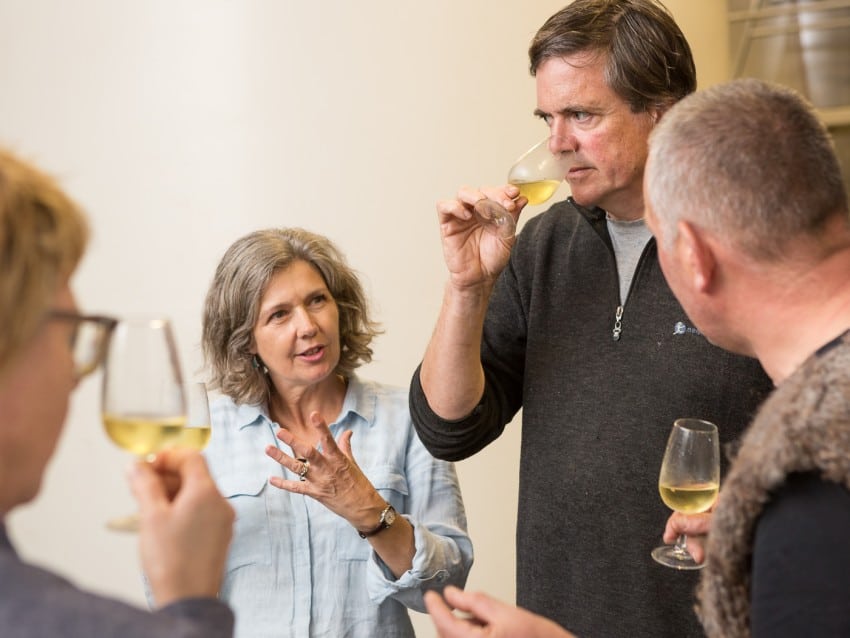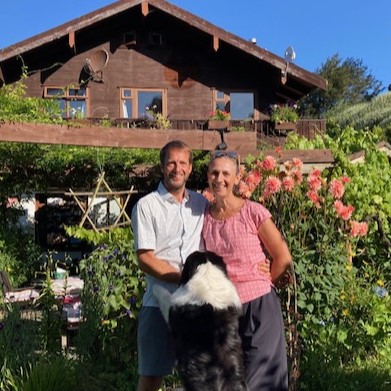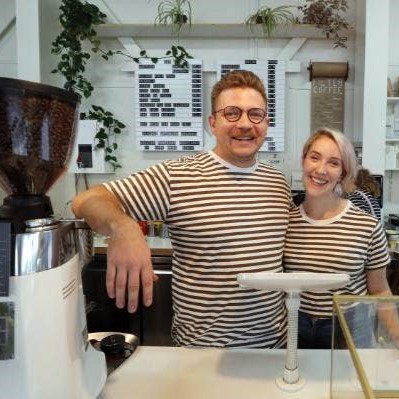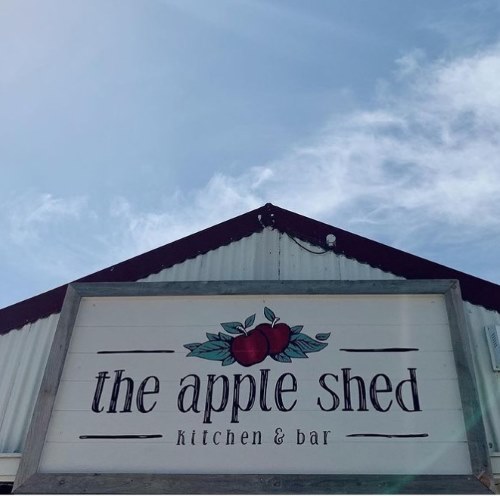
Peckham’s Cider – Published Nelson Mail 12.01.16
When Caroline and Alex Peckham moved from Britain to New Zealand one of the things they really missed was a glass of real cider, cider made with the right apples, batch-brewed and made from fresh apple juice, not concentrate or ingredients that aren’t in proper cider. What to do? Make their own of course.
They moved to Canterbury from Britain in 2002 and brought a range of skills with them; Alex is a geologist and Caroline has an MA in both French and Spanish; they met while studying at Edinburgh University and have been together ever since, both personally and professionally. Alex says “while our skills are quite different they are also complimentary, the mix of skills we bring to the things we do is really important.”
In 1989 they wrote a small selection of children-focussed educational books on global warming, climate change and population growth and that lead them to building a small business around the subject, they developed a skills framework for business at a management level around environmental education so business could embrace environmental considerations as part of their everyday activities.
They planted their first specialty cider apple trees in Canterbury in 2003 and set about learning about what makes great cider, everything from the right trees to the best ways of making and conditioning the end product.
Growing varieties that have not been commercially grown in New Zealand was challenging and they soon realised that as people had been growing apples very successfully in the Moutere Hills for decades it was the place they should move to so in 2006 they put everything they had into buying a block of land in Neudorf Road that had a modest orchard and a block of boysenberries. Caroline says “the boysenberries were a difficult crop to manage because of the weather and the market was collapsing but the berries we did harvest kept food on the table and gave us time to top-graft specialty cider apple varieties onto the old trees, as soon as we had crops of the cider apples the boysenberries came out and more trees went in.”
They had to learn everything about the varieties they were planting as no one had grown them commercially in New Zealand before, “so we have been learning how they perform from every point of view in New Zealand climate and soil conditions, how vigorous the growth is, how big the crop is, what are the flavours like” says Alex “different varieties performed quite differently to the same varieties in the UK, Dabinett is the main commercial variety there but doesn’t appear to be delivering the qualities here that are needed for great cider.”
The technical learning curve has been steep too, learning about cider making when you are isolated from traditional cider makers meant they had to rely on their science knowledge and help from others. Caroline says “wine makers in particular have been very generous with time and knowledge, Tim & Judy Finn from Neudorf Vineyards up the road have helped a lot with things like selling us small amounts of yeast because we didn’t need and couldn’t afford the huge quantities the suppliers wanted to sell us.”
New Zealand also doesn’t have the cider-making infrastructure that is so common in Britain, services like contract bottling for small-scale producers so that has been another challenge to work their way through and again wine makers have been very generous with their time and advice as they worked out how to make high quality, hand crafted cider.
It just so happens making cider is a very similar process to making wine and they are trialling things wineries have been doing in recent times to, like wild ferments where the yeasts that occur naturally in the environment are used to ferment the apples rather than using a commercial yeast. “In fact we are applying new world winemaking techniques to cider making by making sure the cidery is sparkling clean during production, using stainless steel tanks that lets us have better fermentation controls, all quite unlike many traditional cider makers in Britain.”
Peckham’s ciders are made from 100% fresh juice from varieties like Kingston Black, Browns, Knotted Kernel, Chisel Jersey, Trenlett’s Bitter, Dabinett, Yarlington Mill, Sweet Alford and Major to name a few, and are made only in autumn with tree ripened fruit.
“We take our time, slow fermenting and ageing our ciders for at least six months” they say and the results certainly show in the finished product. As well as a traditional dry apple cider they also produce ciders with flavours like elderflower, feijoa, hop, boysenberry and cardamon. A few varieties have acids and sugars that are so well balanced they can make single variety ciders as well as a cider fortified with apple brandy (Pommeau) and a pear cider (perri).
The growth of the business has been fast as people in New Zealand have discovered just how wonderful real cider is. “We soon outgrew our first apple press and cidery, and in 2012 we built a new cider barn and imported an apple juicing line from Europe. A second tank room followed the year after, and every inch is now full. We don’t see ourselves growing rapidly in terms of volume, but we do want to focus on making our ciders ever better and on experimenting with new cider making techniques” they say, however I think the demand for their hand-crafted product is going to continue to grow and they will soon be looking to expand the production facilities again.
Alex and Caroline Peckham have poured everything they have, including huge amounts of passion, into creating what I think are some of New Zealand’s best ciders, if you want to find out more go to www.peckhams.co.nz.



